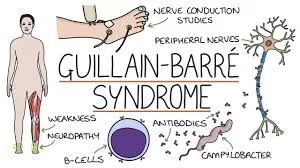In a groundbreaking development, Tulane University researchers have devised a revolutionary blood test capable of swiftly diagnosing lung infections caused by nontuberculous mycobacteria (NTM). The pioneering study, published in the American Journal of Respiratory and Critical Care Medicine, heralds a new era in the diagnosis and treatment of NTM infections, offering hope to millions worldwide.
NTM, ubiquitous bacteria found in water systems, soil, and dust, pose a significant threat to individuals with underlying health conditions, particularly affecting the lungs and respiratory system. While harmless for most people, NTM infections can lead to chronic coughing, scarring, and heightened susceptibility to respiratory infections like bronchitis and pneumonia. However, due to the slow growth of the bacteria, conventional diagnosis methods often result in prolonged delays in treatment.
Led by corresponding author Bo Ning, assistant professor of molecular biology at Tulane University School of Medicine, the research team has developed a CRISPR-based platform capable of rapidly detecting NTM infections through blood testing. Unlike traditional methods relying on laborious bacterial cultures, this innovative approach yields results in as little as two hours, revolutionizing the diagnostic landscape for NTM infections.
“The urgency of addressing NTM infections cannot be overstated,” noted Bo Ning. “With cases on the rise globally, accelerated diagnosis is paramount to ensuring timely and effective treatment for affected individuals.”
The preliminary findings of the study demonstrate the blood test’s remarkable accuracy, correctly identifying over 93% of patients with NTM infections. By analyzing NTM DNA fragments present in the bloodstream, the test offers insights into potential drug responses, empowering healthcare providers to tailor treatment plans swiftly and effectively.
“Our blood test represents a paradigm shift in NTM diagnosis, enabling same-day results and eliminating the need for specialized equipment and training,” explained Ning. “This accessibility is crucial for combating NTM infections, particularly in regions where resources may be limited.”
Moreover, the test specifically targets Mycobacterium avium complex (MAC), the predominant cause of NTM-induced pulmonary disease, streamlining diagnosis and facilitating prompt intervention. Ning envisions further advancements, including the expansion of CRISPR-based detection capabilities to encompass a broader spectrum of NTM species and the development of point-of-care tests for widespread accessibility.
In collaboration with Oregon Health & Science University, Tulane University’s groundbreaking research paves the way for a future where NTM infections are swiftly identified and effectively managed. As NTM infections continue to escalate, accessible and efficient diagnostic tools like the newly developed blood test offer a beacon of hope in the fight against this formidable health threat.
“The ultimate goal is to mitigate barriers to testing and diagnosis, equipping healthcare providers worldwide with the tools needed to confront the looming challenge of NTM infections,” affirmed Ning. With the advent of rapid diagnostic technologies, the medical community stands poised to confront and overcome the growing menace of NTM infections.












